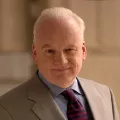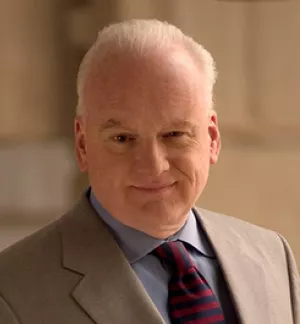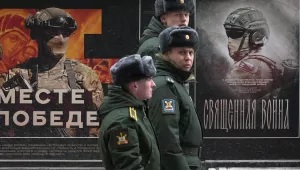It's not just Bush and Cheney that are to blame. The system is broken. That's the message in this provocative sequel to Against All Enemies. When Richard Clarke apologized for 9-11, he never thought that there would be so many more government failures in so short a time, but climate change, Katrina, the struggle with al Qaeda, the insecurity in cyberspace, and the failure of homeland security all bespeak a larger problem, a systemic failure. Clarke documents the failures and suggests solutions for making government work better in its most important job, protecting us.
Below are some key excerpts from the book:
Chapter 1: 9-11 Changed Everything?
When I said "Your government failed you" to the families of the victims of 9-11, it seemed to me that I was merely stating the obvious: the government had failed the American people. And I had.
Three thousand people had been murdered in a morning, not on a battlefield, not in their battleships as had happened in Pearl Harbor, but in their offices. They had been killed by a terrorist group that had promised to attack us, and which we had been unable to stop.
******
"9-11 changed everything." That was the remark that we heard over and over again in the years that followed. It was only partially true. 9-11 did not change the Constitution, although some have acted as if it did. Nor did the government's response to the attack make us more secure.
******
By the second anniversary of the 9-11 attack on America, the United States had invaded and occupied two Islamic nations, created an Orwellian-sounding new bureaucracy, launched a spending spree of unpreedented propotions, and was systematically shredding the Constitution. Despite our frenzy, or in many cases because of it, the problem we sought to address, violent Islamist extremism, was getting worse. Much of what our government did after 9-11, at home and abroad, departed from our values and identity as a nation. It was also massively counter-productive. Our government failed us before and after 9-11, and it continues to do so today.
Chapter 2: No More Vietnams
For no institution is the pain of failure more personal than for our military. When the military fails, their friends die and leave widows. Many of the living lose limbs or acquire post-traumatic stress disorder. And no institution has tried as hard as the U.S. military to understand why failure occurs or has worked as diligently to correct mistakes so that they do not recur. The formal Lessons Learned process is ingrained in the U.S. military's way of doing business. And yet there is Iraq.
The U.S. military is so richly deserving of our thanks and respect that few civilians have been willing to suggest that the Iraq disaster is at all the military's fault. Clearly the elected civilian commander in chief, his seasoned Vice President, the two-time Secretary of Defense, Congress, and others should bear most of the blame. But the military, more precisely the officer corps, and specifically many general officers over the course of thirty years, deserve some culpability. I say that not to add to the chorus of scapegoating and finger-pointing, but so that we as a nation can follow in the military's tradition of lessons learned, so that we can avoid Santayana's condemnation. And I believe the trail leads back to the military's own reactions to the national failure that was the Vietnam War. To understand Iraq, we need to remember Vietnam and what happened in the U.S. military after that war....
******
...Despite Shali's greater willingness to use force, a risk aversion deriving from the Weinberger-Powell Doctrine continued. That attitude was taken to its illogical extreme in dealing with terrorism. Before 9/11, as the President's head of counterterrorism, I came to the reluctant but inescapable conclusion that the U.S. military leadership did not want to be part of offensive operations against terrorists. On several occasions the National Security Advisor and his cabinet colleagues in the NSC Principals Committee asked the Chairman of the Joint Chiefs to plan operations to go after terrorists. Sometimes the targets involved were just one man -- a lone al Qaeda operative in a hotel room in Khartoum in 1998 or in 1995 a single terrorist working in the Water Department in Qatar. Every time the military came back, recommending against the operations and presenting plans intentionally oversized, involving enormously outsized forces that would have blown any chance of surprise and would have looked as if we were invading.
The man working in the Qatar Water Department was reported to be the uncle of 1993 World Trade Center bomber Ramzi Yousef, whom we had hunted down in Pakistan in 1995. The man in Qatar had been secretly indicted in New York, and evidence suggested that he had had a hand in other operations and would probably plan more. We wanted him badly, but we knew that if we approached the Qatari government to arrest him and hand him over, someone would probably tip him off and he would escape. The CIA correctly said it had no capability to stage covert snatches in Qatar, nor did the FBI. So, remembering that there were small Special Operations Command units trained to do just such things, I urged that the military be ordered to go in with a small team. The Chairman came back not with a small covert unit of Special Operations forces but with an enormous force package and a recommendation against using it. The principals decided not to overrule the military and instructed us to ask the Qataris to arrest the terrorist. We did, but then the Qatari police went to do so, our terrorist had, predictably, just fled the country.
The man in the Qatar Water Department did, as we suspected, go on to plan other terrorist strikes. His name was Khalid Sheik Mohammed. He went on to mastermind the 9/11 attacks on the United States.
Chapter 3: No More Iraqs
The third failure happened when it became clear that the President and his advisers were intent on invading Iraq, and those generals empowered to give professional military advice to the civilian commander in chief (and the Congress) failed to point out that the U.S. military was not prepared for what was a foreseeable -- indeed, I would argue a likely -- scenario: insurgency.
CIA analyses at the time made clear that insurgency was a possible postinvasion outcome. In January 2003, two intelligence assessments, "Principal Challenges in Post-Saddam Iraq" and "Regional Consequences of Regime Change in Iraq," predicted that internal violence and a surge in Islamist extremist violence might follow an overthrow of Saddam Hussein and an occupation. It is one thing not to prepare for counterinsurgency in the hope that America will never have to fight one. It is quite another thing not to tell the President that you have little or no counterinsurgency capability when he directs you to conduct a war where an insurgency is likely. The point of not having a counterinsurgency capability was, presumably, so we would never have to fight one again. However, the strategy works only if you tell the Secretary of Defense or the President or the Congress the dirty little secret that you are not prepared for such a war. Then, if you are lucky, they will decide not to run the risk of going into a war that could result in a counterinsurgency. That strategy does not work if you remain silent. I am reminded of the scene in the 1960s movie Dr. Strangelove, in which the Soviet Ambassador reveals that any U.S. nuclear attack on the USSR will automatically trigger a world-ending response. Incensed, Dr. Strangelove yells at him, "the . . . whole point of the doomsday machine . . . is lost . . . if you keep it a secret! Why didn't you tell the world, eh?"
*****
A fifth failure of some generals crossed a line that had long been defended by the leadership of the U.S. military. For generations, the U.S. military's leaders had held fast to observing international law with regard to prisoners. They believed that only if we upheld international standards did we have any chance of convincing others to do so. In short, if we tortured and abused prisoners, it increased the chances that our own troops would be abused when they were captured. Yet the record seems clear that generals, perhaps including the top U.S. commander in Iraq, Rick Sanchez, knew about, condoned, and authorized the kind of despicable treatment that the world saw in the pictures from Abu Ghraib. There may even have been daily reports to Secretary of Defense Donald Rumsfeld on the progress of abusive interrogations and torture. Beyond the effect on what others might do to future U.S. prisoners, the Abu Ghraib phenomenon had an immediate effect on Arabs' and Muslims' perceptions of the United States of America. It was like rocket fuel for the al Qaeda movement worldwide. While generals failed in their legal, moral, and strategic mission by permitting such activity, at least one general did his duty. Major General Antonio Taguba was asked to investigate what had happened and write a report. He was encouraged to sweep as much as possible under the rug, make it look as if a "few bad apples," low-ranking personnel, had run amok. Instead, Taguba told the truth.
For doing so, he was asked to retire early. He knew that he was sacrificing his two-decade-long career, but he also knew he had to do the honorable thing. After retiring, he told the reporter Seymour Hersh, "We inculcate duty, honor, integrity . . . and yet when we get to senior officer level we forget those values. I know the Army will be mad at me . . . but the fact is that we violated the laws of land warfare, . . . our own principles, . . . and the core of our military values. . . . Those civilian and military leaders responsible should be held accountable." In any hall of American military heroes, there should be a special place for Antonio Taguba, for he demonstrated a form of courage rarer than battlefield valor, and he gave real meaning to the word honor.
Chapter 4: Can we reduce intelligence failures?
...There are similar problems with the other class of technical collection, Signals Intelligence (SIGINT). The problem is not usually a matter of our ability to collect electrons; it is sometimes a question of recognizing the importance of what has been collected. In 1988 a young State Department INR analyst reported to me that he had found, in the many reports sent to him, a one-line item about a signal normally associated with Chinese long-range nuclear missiles. The problem was that the analyst covered Saudi Arabia, not China, and the report was about Saudi Arabia.
No one else seemed to have noticed the routine report, nor did anyone seem to care when he raised a question about the aberrant signal. The report of that electronic bleep made no sense to me at first. Saudi Arabia was a close U.S. ally and got its weapons from us and from the Europeans. Neither we nor the Europeans would ever have sold it long-range nuclear-capable missiles. But wait, that was the point. Of course, we would not have sold it such a missile. Maybe the Saudis, therefore, had not asked us. Maybe they were crazy enough to have wanted such a weapon and bought them from the Chinese. Surely, however, we would have detected the negotiation of such a deal, or at least the delivery of such a big weapons system. As I said those words to the analyst, I realized that they were probably not accurate. I had already learned never to assume that U.S. intelligence had detected something, no matter how big and obvious. We asked for satellite photography and promptly found an extremely large base in the Saudi desert, complete with Chinese troops and long-range nuclear-capable missiles. The base was almost completed and the missiles were not yet operational.
Conveniently, the Chinese foreign minister was a floor above me at the time, meeting with Secretary of State George Shultz. Shultz was less than delighted with the prospect of having to confront his guest and the Saudis about their secret activities. However, he quickly understood that the Saudis appeared to be pulling their own version of the Cuban Missile Crisis. It looked as if the Saudis were trying to sneak nuclear missiles into their country and have them operational before anyone knew about them. China, which in the 1980s was not rich and had little respect for the Nuclear Non-Proliferation Treaty, had readily agreed to sell the old missiles for a small fortune. Had it also agreed to sell the nuclear warheads without which the inaccurate missiles were worthless? Shultz did not ask that question of his guest. Instead, he asked the Saudi king to agree that no nuclear warheads would be introduced into Saudi Arabia and that the Chinese base would be open for inspection. The Saudis agreed. Had they not, it is likely they would soon have seen heavily laden fighter-bombers marked with the Star of David streaking overhead well before their missile base was completed....
NOTE
Watch a video of Richard Clarke discussing the book.
Clarke, Richard. “Your Government Failed You: Breaking the Cycle of National Security Disasters.” Ecco, May 2008



